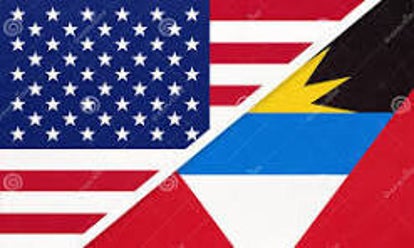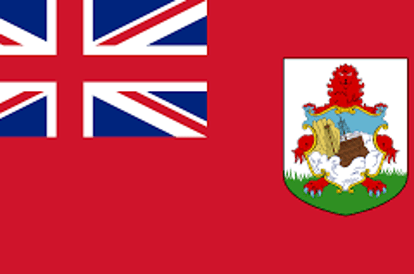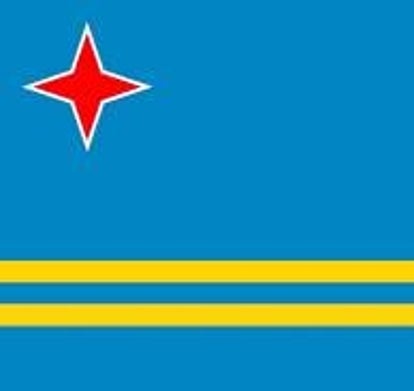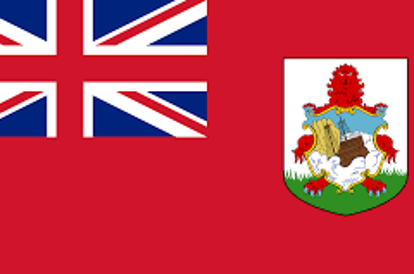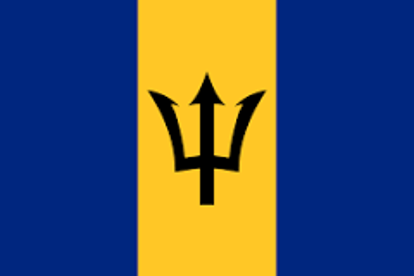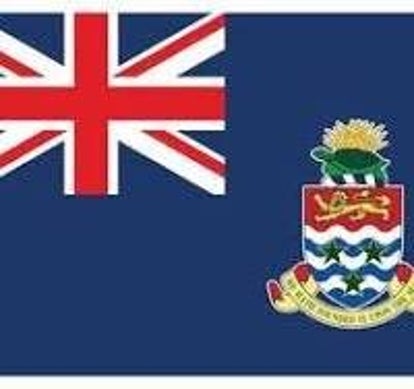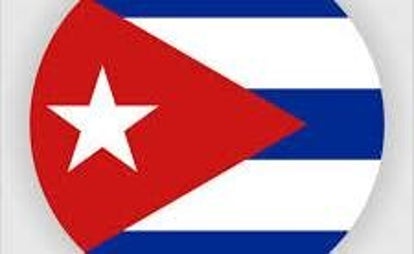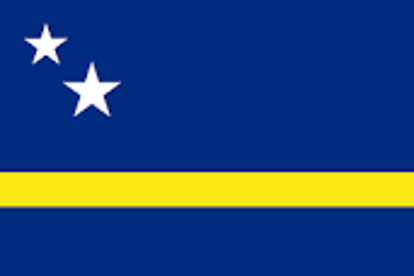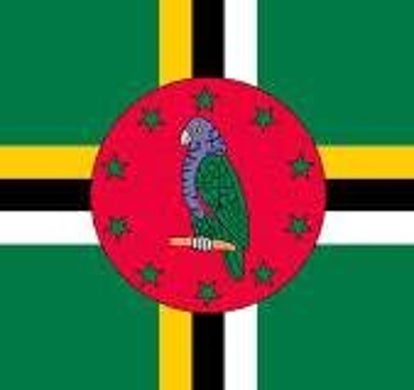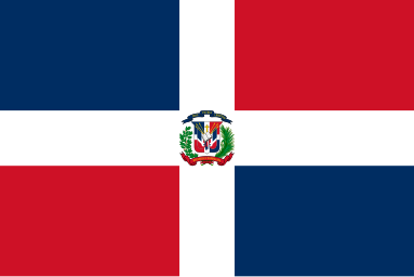"God Bless Anguilla" is the national song of the British overseas territory of Anguilla. Adopted in 1981, shortly after the separation of Anguilla from Saint Christopher-Nevis-Anguilla, it is considered the official local anthem, as "God Save the King" remains the official national anthem.
An arrangement of the Anguilla National Anthem for Brass Quintet, which is God Save the King. "God Bless Anguilla" is the national song of the British overseas territory of Anguilla. Adopted in 1981, shortly after the separation of Anguilla from Saint Christopher-Nevis-Anguilla, it is considered the official local anthem, as "God Save the King" remains the official national anthem.
The anthem was adopted in 1967 while Antigua and Barbuda were still a British colony. It was adopted as the national anthem upon independence in 1981.
"Aruba Dushi Tera" ("Aruba Sweet Land", or "Aruba Lovely Country") is the national anthem of Aruba. It is a waltz written by Juan Chabaya Lampe and composed by Rufo Wever. The last verse was written by Hubert (Lio) Booi. It was accepted as the Aruban national anthem on 18 March 1976. It is written in Papiamento.
"March On, Bahamaland" is the national anthem of The Bahamas. Timothy Gibson composed the music and authored the lyrics. It was adopted as the national anthem in 1973, when the country gained independence from the United Kingdom.
Bermudan Anthems for Brass
Bermudan Anthems for Brass
"Hail to Bermuda", also known as "This Island's Mine", is the territorial anthem of Bermuda, written and composed by Bette Johns. The official anthem is the national anthem of the United Kingdom, "God Save the King", as the island is a British overseas territory.
"In Plenty and In Time of Need" is the national anthem of the country of Barbados. It was written by Irving Burgie and was composed by C. Van Roland Edwards. As one part of the West Indies Federation from 1958 to 1962, Barbados' anthem was supposed to be "Forged from the Love of Liberty''.
"Beloved Isle Cayman" is the official national song of the Cayman Islands, composed by Leila Ross-Shier in 1930. It became the official national song when the Cayman Islands Coat of Arms, Flag and National Song Law was passed in 1993.
"El Himno de Bayamo" (English: "The Bayamo Anthem", lit. 'The Hymn of Bayamo"') is the national anthem of Cuba. It was first performed in 1868, during the Battle of Bayamo. Perucho Figueredo, who took part in the battle, wrote and composed the song. The melody, also called "La Bayamesa" (English: "The Bayamo Song"), was composed by Figueredo in 1867.
The lyrics were first written by a friar of Dutch origin, Friar Radulphus, in celebration of the coronation of Queen Wilhelmina in 1898. The song was known as "Den Tur Nashon Nos Patria Ta Poko Konosí" ("In Every Nation Our Fatherland Is Little Known").
It was adopted upon the island gaining statehood in 1967 and again with Dominica's independence in 1978. The lyrics are by Wilfred Oscar Morgan Pond (1912–1985), and the music was composed by Lemuel McPherson Christian OBE (1917–2000).
The national anthem of the Dominican Republic (Spanish: Himno nacional de República Dominicana), also known by its incipit Valiant Quisqueyans (Spanish: Quisqueyanos valientes), was composed by José Rufino Reyes y Siancas (1835–1905), and its lyrics were authored by Emilio Prud'Homme (1856–1932).
"Fair Antigua, We Salute Thee" is the national anthem of Antigua and Barbuda. Written by Novelle Hamilton Richards and composed by Walter Garnet Picart Chambers.
On 16 January 1976, the Executive Council of Aruba appointed an advisory committee with the assignment to come up with an anthem that took into account "Aruba dushi tera". The song was already very popular among the population and dated from the early 1950s.
Since the Bahamas continued to be a Commonwealth realm after independence, "God Save the Queen" was retained as the country's royal anthem. That anthem was twice played by mistake at the 1982 Commonwealth Games medal ceremony, when Shonel Ferguson won gold in women's long jump.
"Hail to Bermuda" is the anthem of Bermuda.The anthem has been used during competitions where multiple British overseas territories are competing, such as the 2011 Island Games.
The anthem was first performed on Independence Day, on 30 November 1966. In 1967, the anthem's music was rearranged by Inspector Prince Cave of the Royal Barbados Police Band, giving it a more sustained harmony while retaining the original tune.
"Beloved Isle Cayman" is the official national song of the Cayman Islands, composed by Leila Ross-Shier in 1930. It became the official national song when the Cayman Islands Coat of Arms, Flag and National Song Law was passed in 1993.
Officially adopted by Cuba as its national anthem in 1902, upon the foundation of the Republic, it was retained even after the revolution of 1959. The Cuban composer Antonio Rodriguez-Ferrer contributed the musical introductory notes to the Cuban national anthem.
The Anthem of Curaçao (Papiamento: Himno di Kòrsou) is the national anthem of Curaçao. Officially adopted on 26 July 1978, it consists of four verses, although only the first and last are commonly sung. Its theme is best summed up by the first stanza, praising the grandeur of Curaçao, as small as the island may be.
"Isle of Beauty, Isle of Splendour" is the popular title for the national anthem of Dominica. The anthem was listed by The Guardian as one of the 10 best national anthems of countries competing at the 2008 Beijing Olympics.
The Spanish name of the Dominican Republic, "República Dominicana", is never used in the anthem's official Spanish lyrics, nor is the demonym for Dominicans, "dominicanos". Rather, the indigenous word for the island of Hispaniola, "Quisqueya", is used twice, and its derivative demonym, "quisqueyanos", is used once. However, research later showed that these words do not seem to derive from the original Arawak Taíno language.


